Tooth Extractions – Ramsey, NJ
Straightforward Tooth Removal
A tooth extraction is a procedure that we’ll only recommend when there’s no other option for protecting your oral health. It’s normal to be nervous about having a tooth extraction performed, but don’t worry; our team is here to make the process a stress-free one. We can also help you figure out your best options for replacing the tooth once the extraction is complete. To schedule a consultation with Dr. Vahid today to ask about tooth extraction, give us a call.
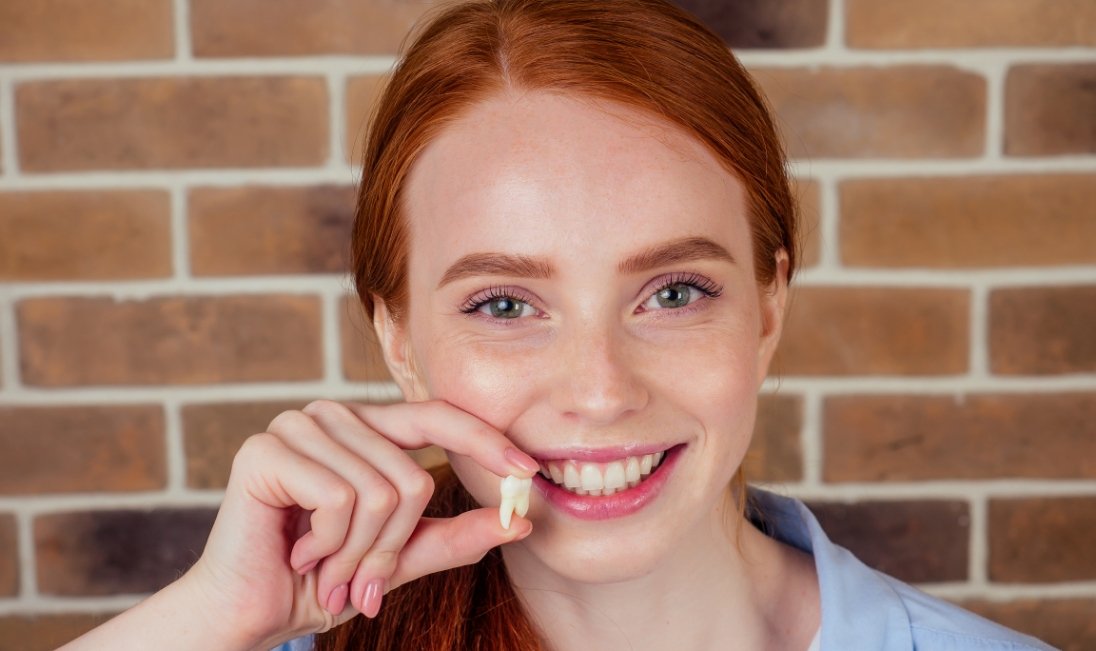
Why Choose AV Dental Associates of Ramsey for Tooth Extractions?
- Dentist with Years of Experience & Training
- Small, Personable Dental Office
- High-Quality Tooth Replacements
When Are Tooth Extractions Necessary?
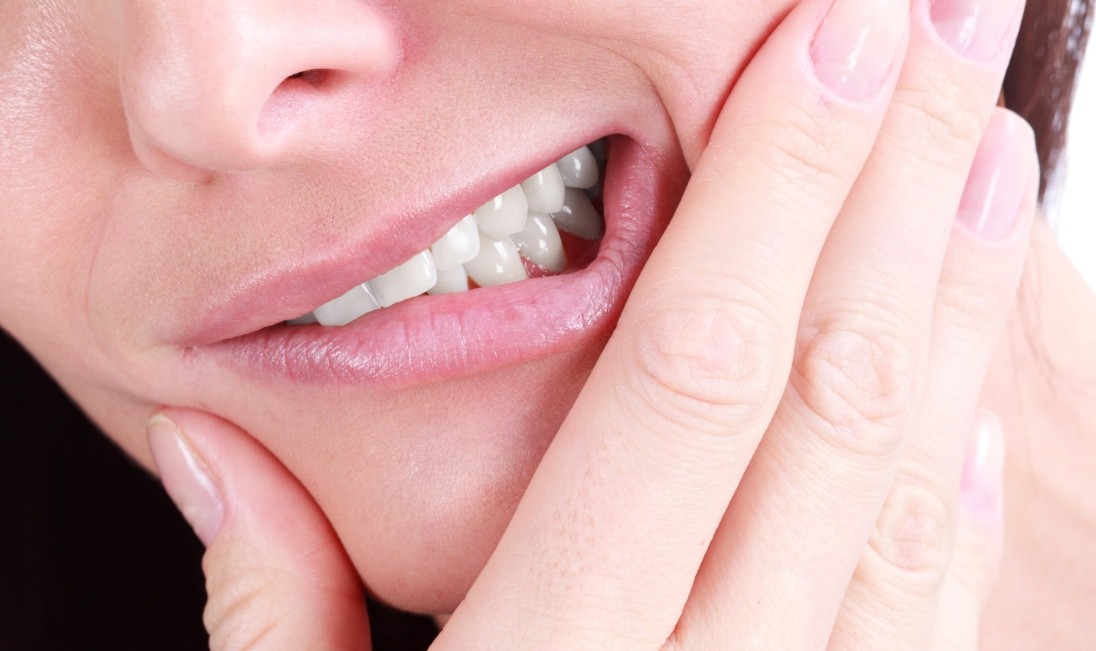
We always prefer to save damaged or decayed teeth when we can, but a tooth extraction might be the only choice if:
- The tooth has been so badly injured that it can no longer support a dental crown.
- There is a severe infection in the tooth that cannot be corrected with root canal treatment.
- You have crooked or overcrowded teeth that are making orthodontic treatment impossible.
- You are suffering from advanced gum disease that has caused your teeth to loosen.
The Process of Removing a Tooth
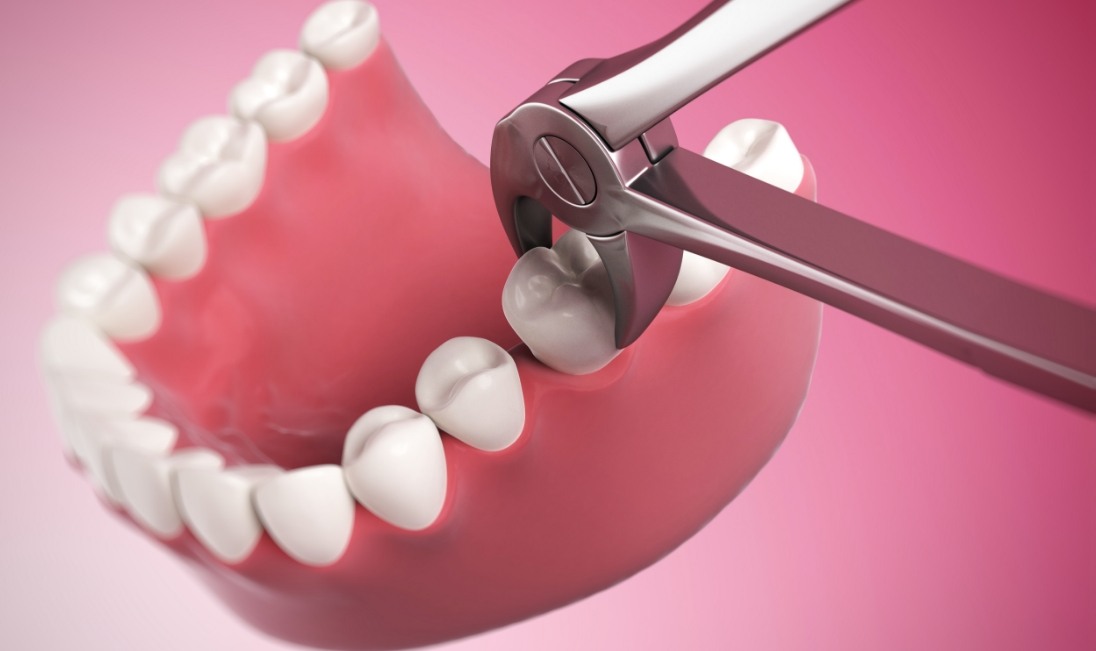
In many cases, removing a tooth is a simple procedure. We will numb the mouth with a local anesthetic before loosening the tooth in question with an elevator; then, we simply rock it back and forth with forceps until it comes out of the mouth. This type of extraction is typically a viable option as long as the tooth is visible above the gumline.
In some cases, a tooth might need to be extracted surgically. This means creating an opening in the gums so that the tooth can be accessed. Sometimes, it’s necessary to divide the tooth into sections that are removed one at a time.
Tooth Extraction Aftercare
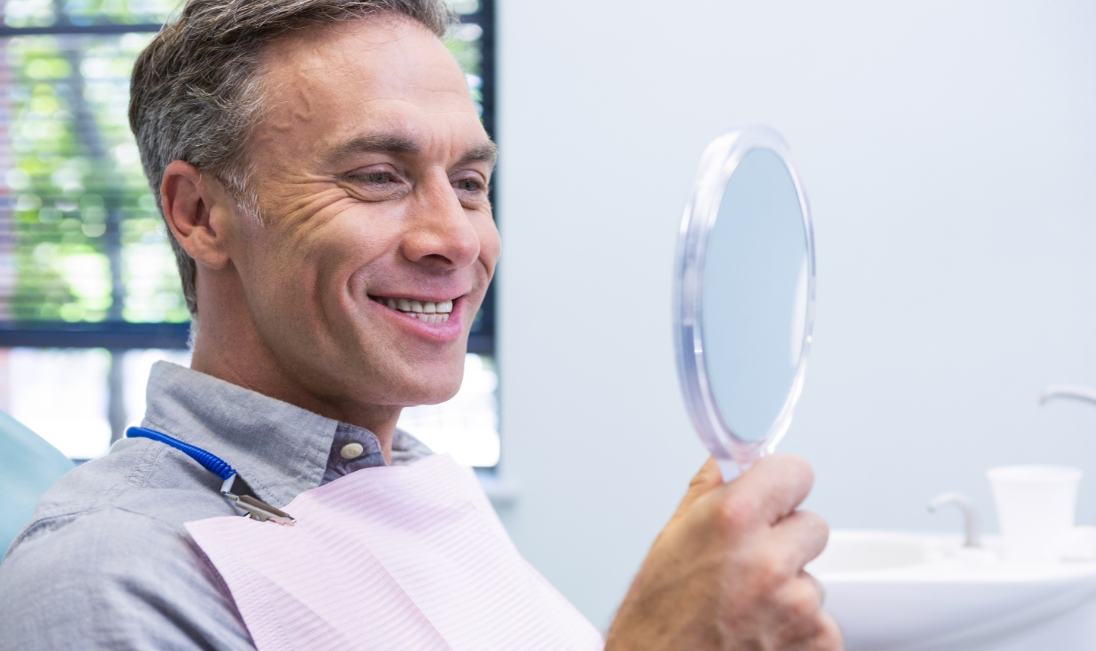
While your mouth is recovering after a tooth extraction, you can use painkillers such as ibuprofen to minimize your discomfort. We also recommend rinsing with salt water several times a day to reduce any swelling. Avoid using a straw during the healing process; it could dislodge the blood clot on the extraction site and cause a dry socket, which can be very painful. When brushing your teeth, be very mindful of the area that’s still recovering.
Understanding the Cost of Tooth Extractions

Keep in mind that tooth extractions will only be performed as a last resort, as we’ll want to do everything we can to preserve your natural pearly whites. However, since this isn’t always a viable solution for your oral health, you’ll want to know how much you can expect to pay for this procedure should you require it. We’ll be sure to walk you through the process as well as the price of the treatment during your initial consultation before moving forward. In the meantime, here are several things you’ll want to consider when it comes to the cost of tooth extractions.
Factors That Can Affect Tooth Extraction Cost
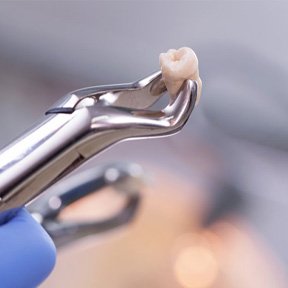
Firstly, you won’t be able to get an exact estimate of the price of your procedure until we’ve been able to evaluate your situation via an initial consultation. Once you’re able to visit us for an examination, we can determine how much you’ll expect to pay. The common factors that can impact the overall cost include:
- The location of the tooth : The kind of tooth and where it’s located can influence the price of your treatment.
- The complexity of the procedure : Certain situations will be more difficult to address than others. For instance, an impacted tooth will cost more to extract compared to a simple extraction.
- The quantity of teeth : Removing more teeth will raise the price compared to only needing a single tooth extracted.
Does Dental Insurance Cover Tooth Extractions?
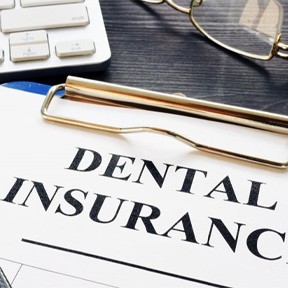
In many cases, dental insurance companies can help cover around half of the total cost of tooth extractions after the deductible is met. Even so, there can still be limitations or restrictions in place for every policy, such as coverage for a certain number of teeth or a waiting period. Since every plan will be different, you’ll want to check in with your insurance provider to get the details of your plan to see how it works with tooth extractions. Our team is also in-network with virtually all PPO dental insurance plans, so we’ll be more than happy to help you understand the ins and outs as well as make the most of your benefits!
How to Make Tooth Extractions Affordable

If you aren’t currently covered by dental insurance, we can offer alternative methods to help minimize your out-of-pocket expenses. Our team is partnered with third-party financiers known as CareCredit and Sunbit Financing—both of which can help split the total cost of treatment into smaller monthly payments with little to no interest. We also offer our AV Dental Discount Plan which can provide 30% discounts on all preventive, periodontal, and restorative treatments with just one annual fee. With these options, you’ll be able to preserve your smile without having to empty your wallet.
Tooth Extractions FAQs
Patients ask us all sorts of questions during their initial appointment. Does getting a tooth extracted hurt? Do I have to fill the empty space? Can I smoke after the procedure? We’ve answered all of these questions (as well as a few others) below. And, as always, you’re welcome to give us a call directly if you have a specific question on your mind too!
Does Getting a Tooth Extracted Hurt?
If you’re worried that having a tooth extracted will hurt, you can take a deep breath; the first step is always thoroughly numbing the area of your mouth that we will be working on. That way, the MOST you feel is some slight pressure from us working to remove your tooth.
Once you return home, you may feel some soreness stemming from the extraction site. To keep you comfortable as you heal, we recommend following all of the aftercare instructions we give you – from not lifting anything heavy and sticking to soft foods to taking OTC pain medication as directed.
What Are My Options for Replacing a Missing Tooth?
That depends on your specific dental needs! If you’re only missing one tooth, then we recommend a dental bridge or implant. However, if you are missing an entire arch of teeth now or several teeth throughout your mouth, then a traditional or implant denture may be the better option. Ultimately, we need to take X-rays, conduct an oral exam, and learn more about your lifestyle in order to answer this question, so don’t hesitate to schedule a consultation with our dental team!
Can I Leave the Space Empty After a Tooth Extraction?
This is a common question we hear from patients who had one of their molars extracted. The short answer is “No, you shouldn’t leave the space empty!” Remember, even the teeth you can’t see play a crucial role in the look, health, and function of your smile. Plus, if you don’t fill the open space, the surrounding teeth can begin to move, negatively affecting the alignment of your bite as well.
Can I Smoke After Getting a Tooth Extracted?
We strongly recommend not smoking for at least the first two weeks following your procedure. After all, tobacco products can result in numerous consequences, including delayed healing. If you’ve had trouble quitting in the past, don’t hesitate to ask us for our recommendations! Remember, we aren’t here to pass judgment; we simply want to help you safely heal from your tooth extraction.
What Should I Do After My Tooth Extraction?
Following your tooth extraction, it’s important to focus on the two R’s: rest and recovery. We’ll also provide you with a list of aftercare instructions so you know exactly what to do to get through the healing period as comfortably as possible. This includes everything from not drinking with a straw to drinking plenty of water and using a cold compress to alleviate swelling.
Is There an Alternative to a Tooth Extraction?
Dentists only ever suggest a tooth extraction as a last resort; they’d much rather save your teeth. Given that fact, there can sometimes be alternatives to the removal process.
For example, say your tooth is facing an infection. A dental team could perform a root canal and save it before the infecting bacteria spreads. Extraction would only become necessary if the tooth could no longer be salvaged or the infection would otherwise worsen.
Still, alternatives may not be viable by the time a dentist advises tooth removal. That would mean you need an extraction to reclaim your strong, pain-free smile.
How Should I Prepare for My Tooth Extraction?
While aftercare is crucial, preparing for your tooth extraction is just as important. Doing so ensures treatment goes as smoothly and effectively as possible.
In particular, you should prepare by doing the following:
- Ask Your Dentist Questions – Before your procedure, consult your dentist about any remaining questions you have. Examples would be what to bring, what to eat the morning of, etc.
- Follow Pre-Op Guidelines – Stick to your dentist’s instructions ahead of treatment.
- Arrange a Ride – Since tooth extraction involves anesthesia, arrange for a trusted adult to drive you home after your procedure.
What’s the Recovery for Tooth Extractions Like?
You must follow several aftercare instructions to heal from your tooth extraction. Otherwise, you’ll face delays (or even reversal) in your recovery.
The biggest rule is to protect the blood clot that forms at the treatment site. If you don’t do so, you’ll likely face painful complications – a dry socket, etc. That means you shouldn’t spit or drink through a straw while you heal.
You should also keep your mouth clean to reduce the risk of infection. For this step, you can start by rinsing your mouth with a salt water mix a few days after treatment. You can then proceed to brushing and flossing once you get the green light from your dentist.
What Can I Do to Speed Up the Healing Time?
To avoid delays in your recovery, stick to the following tips:
- Remember to Rest – Resting is crucial after a tooth extraction; it lets your body focus on healing. So, don’t do anything strenuous for at least 24 hours after treatment.
- Keep Gauze in Place – As instructed by your dentist, keep the gauze pad in your mouth for a while. This material helps your blood clot form.
- Avoid Irritants – Avoid mouthwash and acidic foods while you’re healing.

